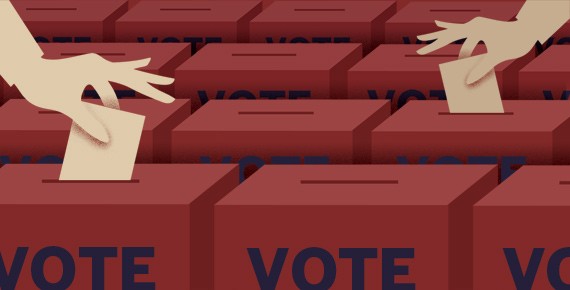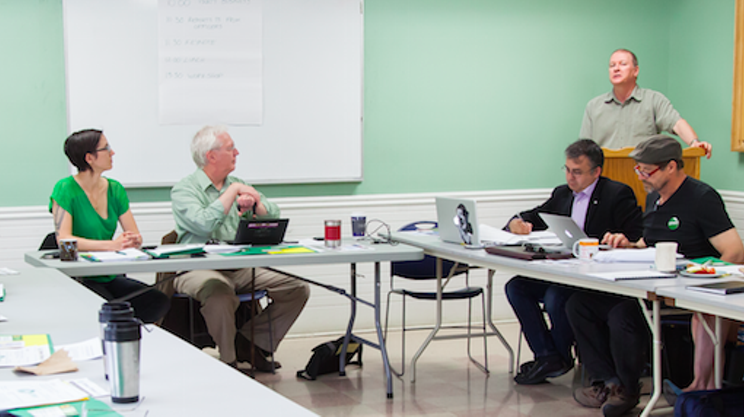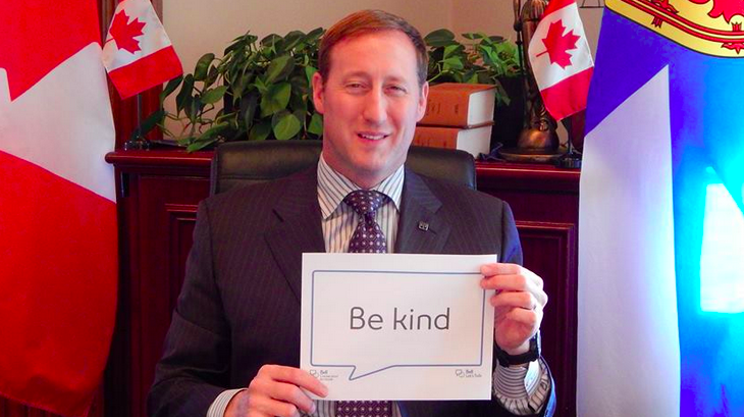If you’re a political junkie living in any of the three electoral districts in Nova Scotia that will see a trio of elections between now and the autumn of 2016, you’re going to get your fix in a big way.
Should you not be looking forward to sales pitches from political candidates, or casting ballots in this year’s federal election, a to-be-announced provincial by-election and next year’s municipal vote—be patient.
It’ll all be over about 18 months from now.
Could voter fatigue, if there is such a thing, possibly play a role here? Jim Bickerton, a political scientist at St. Francis Xavier University in Antigonish, says the jury’s still out on the concept.
Voter fatigue “doesn’t really exist in the political science literature,” he says in an email. But that doesn’t mean there isn’t something going on, especially regarding declining voter turnouts.
Some voters “feel that politics–in other words, the democratic process–should intrude on people’s lives as little as possible. Their primary identity is seen to be ‘consumer’ and ‘taxpayer,’” Bickerton says.
“The idea of democratic citizenship has shrunk,” he says. Election time can be viewed “as an imposition or intrusion on people’s private lives, generating this idea of a burden being imposed or ‘fatigue’ with the whole tiresome process.”
Eligible voters in constituencies in Cape Breton and metro will be going to the polls in by-elections necessitated by three vacancies at Province House. They’ll join their counterparts in the rest of the country when the next federal election occurs, likely in October. They can also vote in the municipal government elections scheduled for mid-October 2016.
By-elections are needed due to two recent resignations from the New Democrats’ caucus and the death of a Liberal MLA.
Frank Corbett, NDP MLA for Cape Breton Centre, stepped down weeks ago to spend more time with his family. Gordie Gosse, NDP member for Sydney-Whitney Pier, resigned for health reasons at the same time. Allan Rowe, who represented Dartmouth South for the Liberals, passed away in March. Premier Stephen McNeil hasn’t announced a voting date or dates for the needed by-elections.
According to Elections Nova Scotia, there are 48,380 voters eligible to cast ballots during the three by-elections.
How much time will electors and candidates have to prepare for the by-elections? It might be months, or it could be a few weeks. In 2010, then-premier Darrell Dexter announced a by-election date that gave all concerned in the electoral districts of Yarmouth and Glace Bay a month to get ready.
“The premier has six months to call a by-election once a vacancy occurs, and six months to hold it once it has been called,” says Dana Doiron, Elections Nova Scotia’s spokesperson. The most recent by-election was in 2011, in Cape Breton North (now part of Northside-Westmount). That vote cost taxpayers $173,650. Doiron says Elections Nova Scotia starts preparing for a by-election “immediately on notification of a vacancy.” He said a returning officer will begin recruiting election workers, “and prepares to train them, soon after the [by-election] is called.”
In Ottawa, Elections Canada personnel are gearing up for voting day on October 19. But they also must be ready in case prime minister Stephen Harper, for whatever reason, wants to go to the people earlier. The dishing out of pre-election goodies, in the form of Tory government largesse, has already started.
On the municipal front, there’s still plenty of time for prospective candidates to put their game faces on. For instance, in the Halifax region, Mike Savage officially entered the mayoral race about eight months before he won the 2012 election.
















